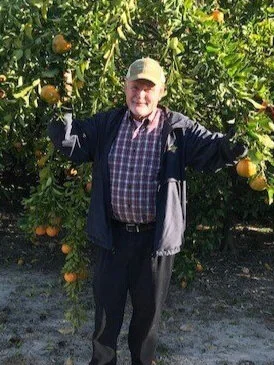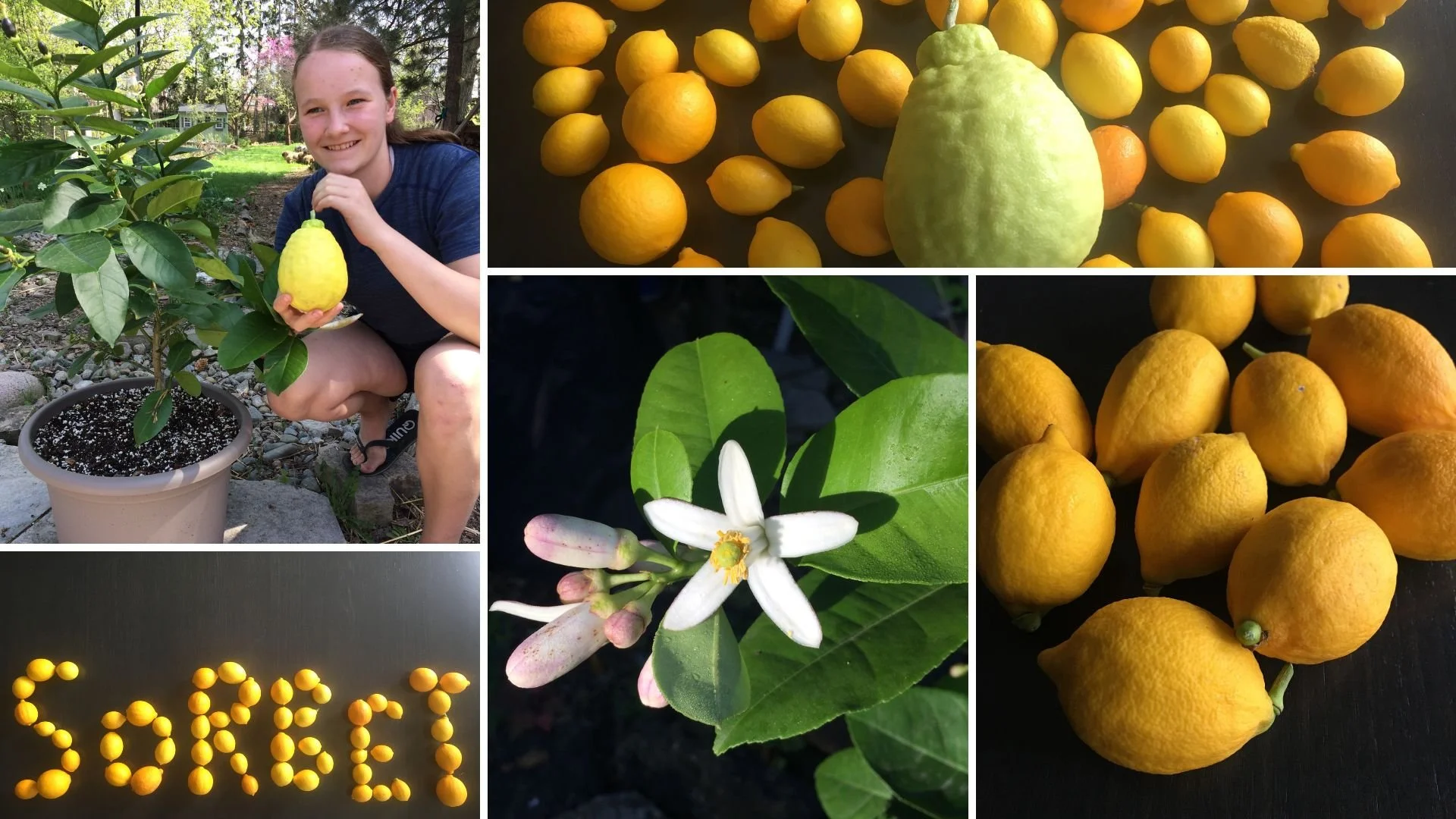The Johnny Appleseed of cold-hardy citrus, Stan McKenzie, joins us to talk about how to grow citrus in cold climates.
McKenzie talks about how he became a "citraholic" and started down the path of growing citrus on his USDA Zone 8 farm and nursery in South Carolina.
McKenzie Farms specializes in citrus suited for cold climates.
McKenzie says that he coined the term “citraholic” to describe people with a citrus-growing obsession. “It’s not really expensive, and the hangover isn’t nearly as bad,” he says with a laugh.
Getting Started in Cold-Hardy Citrus
He recalls his parents taking him to visit his grandmother when he was a child. Near her house was a scraggly tree that died back to the ground every winter. When he learned it was an orange tree, he was fascinated, and asked his dad to order citrus trees from Florida for their farm.
“Every one of them was killed the very first winter,” he says, explaining that he and his father didn’t know how to overwinter citrus.
Fast forward many years, while visiting Charleston, South Carolina, McKenzie saw a grapefruit tree loaded with golden grapefruit. “It lit the match again,” he says.
As he researched cold-hardy citrus he learned that satsuma trees are grown commercially in colder parts of Japan. It wasn’t long before he started growing satsuma. As his satsuma tree grew and prospered, everybody who saw the tree wanted one.
“That put me in the citrus business,” he says.
Cold-Hardy Citrus Tips
Overwintering Citrus Outdoors
McKenzie says that when overwintering in-ground citrus plants in borderline areas such as his, some citrus enthusiasts wrap the tree in a string of incandescent lights and then cover it with and insulating material. The lights give off enough heat to get the citrus plant through especially cold weather.
Another technique is “micromisting,” where a fine mist of water is sprayed over the trees. As the water freezes, it gives off heat—enough heat for the citrus plants to survive cold weather.
Overwintering Citrus Indoors
Where winter temperatures are more severe, people often bring potted citrus plants into the house over the winter. McKenzie says that the biggest challenge with this technique is that the air in most homes is too dry, causing the plants to drop leaves. The well-known Meyer lemon is especially finicky, he says. However, leaves will grow back in spring.
To maintain a higher humidity that is better suited to citrus plants, he recommends filling a tray (such as the foil trays sold for roasting turkeys) with pebbles and water. He says that spritzing with water regularly helps too.
Find Out How to Grow Your Own Lemons
Harvest more lemons this year. Grow Lemons in Cold Climates Masterclass shows you how to grow a lemon tree in a pot or outside with protection. And get lemons!
Top Questions
Thorny growth at the base of the plant. McKenzie explains that many citrus are grafted onto a rootstock of trifoliate orange—a very thorny plant. Sometimes that root will send up a shoot, which, if left to grow, it will overtake the desired variety grafted onto it.
Wrinkled leaves and squiggly lines. He says that this is caused by an insect pest called the citrus leaf miner, which tunnels inside the leaf. While unsightly, they do no harm to the plant and do not affect the fruit.
Common Cold-Hardy Citrus
Prague Satsuma. This hardy satsuma survived the 8°F (-13°C) weater that killed many of the other satsuma varieties in his orchard.
Thomasville Citrangequat. McKenzie says that this cold-hardy citrus is a good lime substitute.
Crosses with trifoliate orange. He says there are many crosses with trifoliate orange that have excellent cold hardiness, but the fruit is usually bitter.
Yuzu, aka Japanese lemon, is very cold-hardy. He knows of people growing this citrus in colder areas such as Raleigh, North Carolina.
Poncirus Trifoliata (a.k.a. Trifoliate Orange)
The trifoliate orange, also known as trifoliate lemon and Poncirus, is extremely hardy, surviving in areas colder than USDA Zone 7. It is a common rootstock. McKenzie says that the small fruit are very seedy and bitter.
Connect with Stan McKenzie
Website: mckenzie-farms.com
Facebook: McKenzie-Farms-Nursery-174405135904728
Find Out How to Grow Your Own Lemons
Harvest more lemons this year. Grow Lemons in Cold Climates Masterclass shows you how to grow a lemon tree in a pot or outside with protection. And get lemons!




